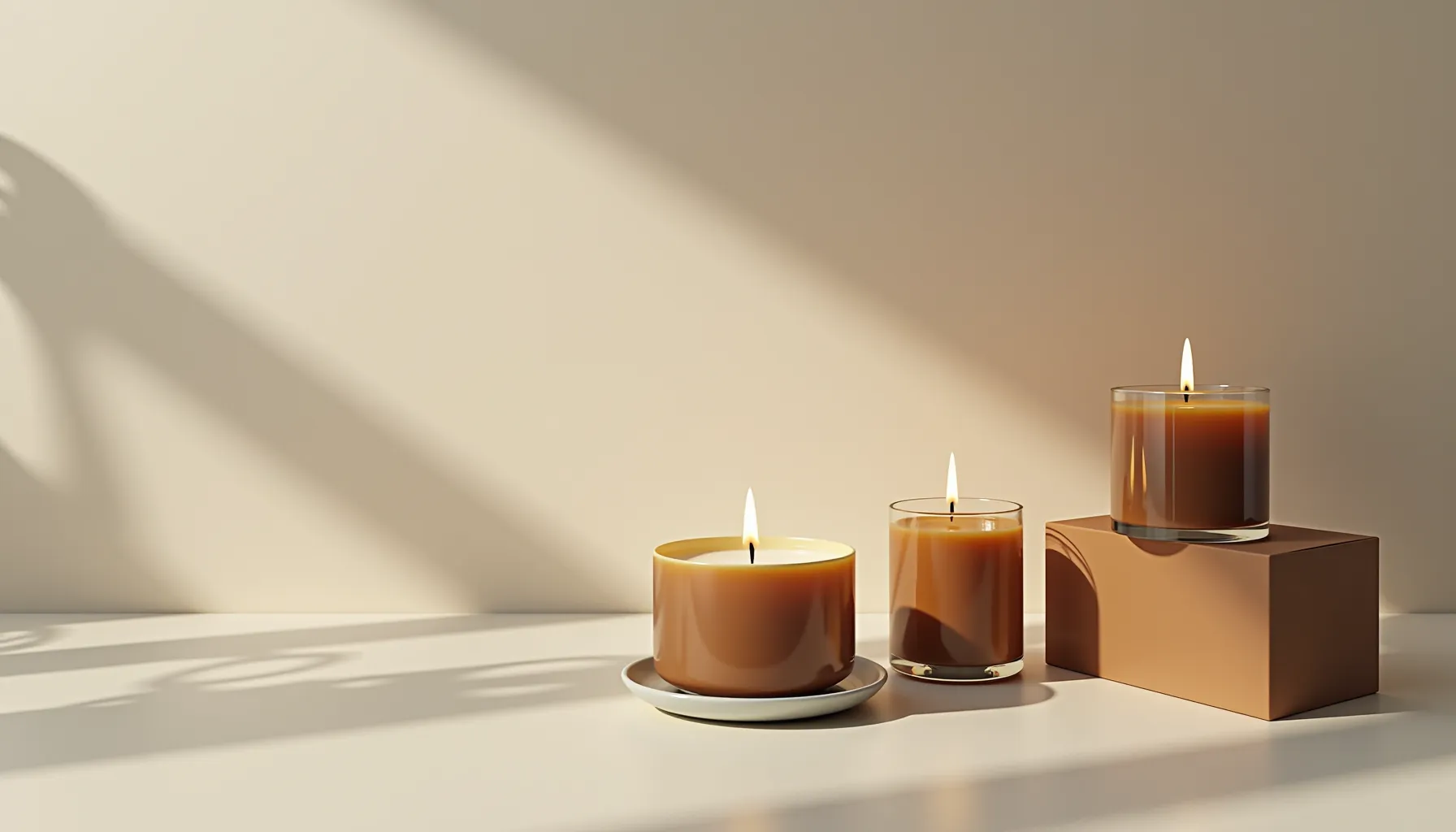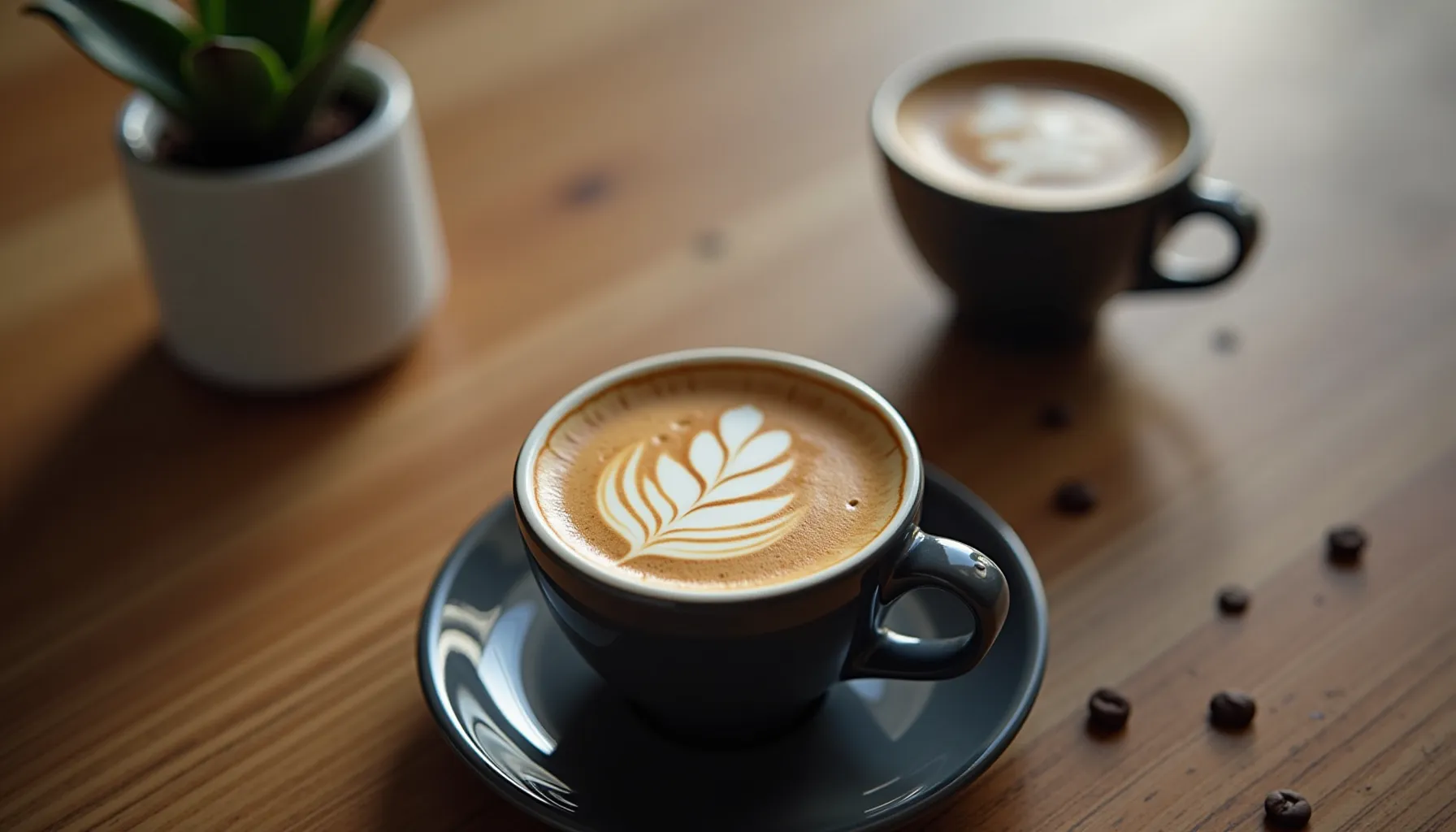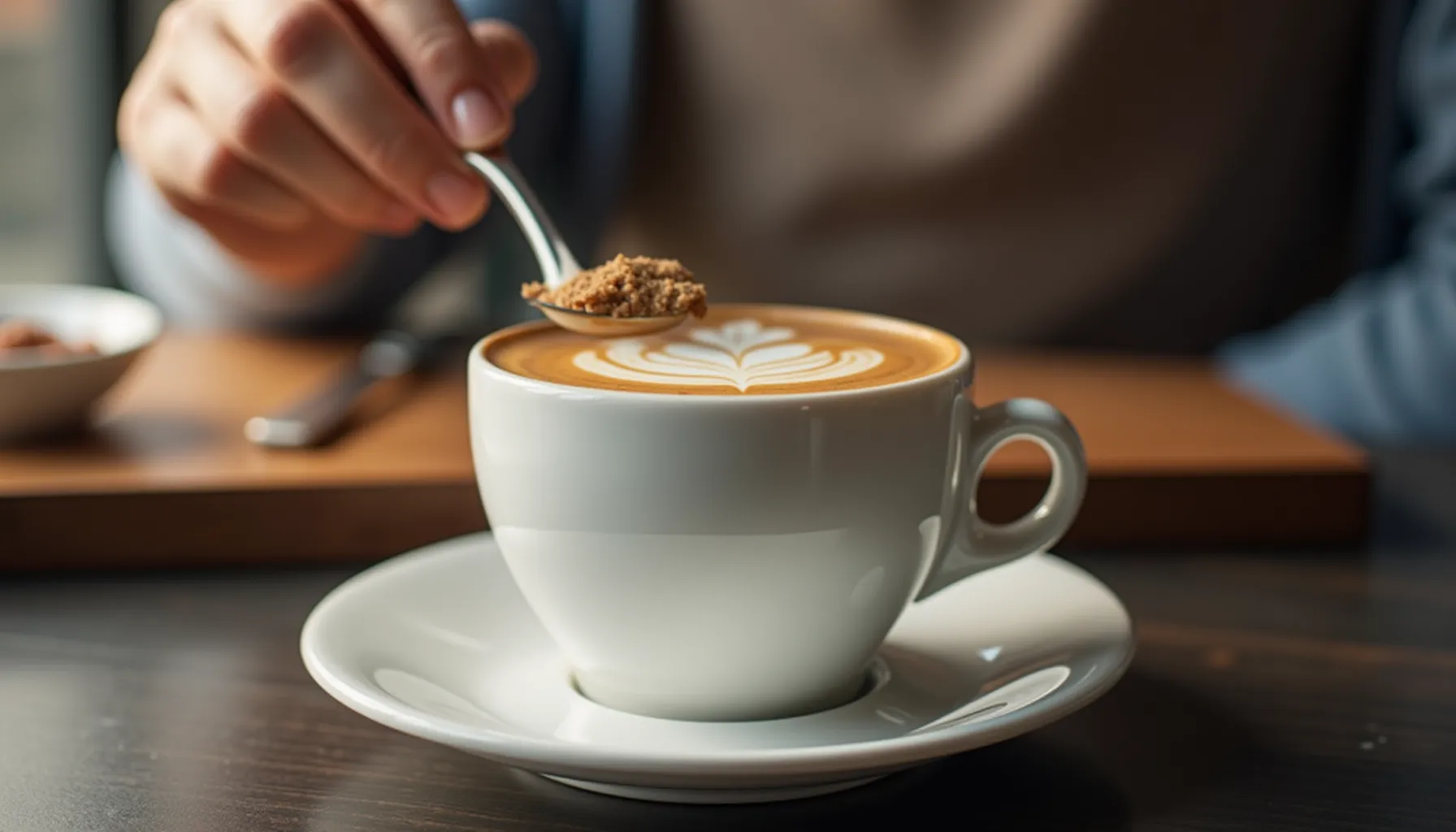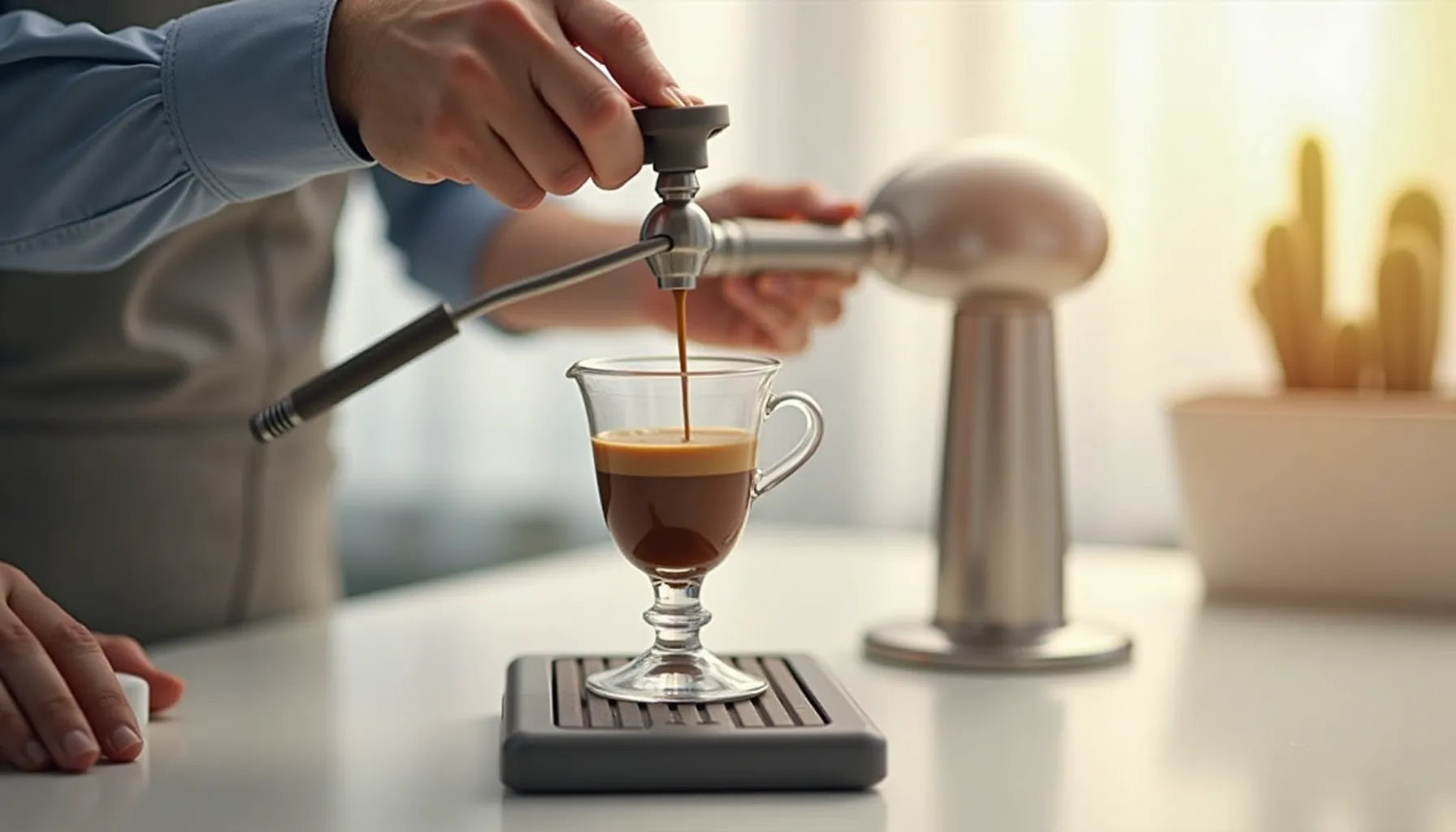Insomnia coffee - two words that seem to contradict each other, yet for many of us, they're intimately intertwined. As a coffee lover who's battled with sleepless nights, I've often wondered: is my beloved brew the culprit behind my restless evenings?
It's a question that plagues millions. We rely on coffee to kickstart our mornings and power through long days, but at what cost to our sleep? The relationship between caffeine and our slumber is complex, filled with misconceptions and individual quirks.
In this article, we'll dive deep into the science of how coffee affects our sleep, explore alternatives for better rest, and discover strategies to enjoy our daily cup without sacrificing precious shut-eye. Whether you're a casual sipper or a self-proclaimed coffee addict, you'll find practical insights to balance your caffeine love affair with quality sleep.
So grab your favorite mug (filled with whatever you prefer), and let's embark on a journey to understand the delicate dance between insomnia and coffee. It's time to wake up to the realities of our favorite brew and learn how to savor it without losing sleep over it.
Key Takeaways:
- Understand the science behind how caffeine impacts sleep patterns
- Learn about different types of coffee and their varied effects on sleep quality
- Discover coffee alternatives and mindful consumption practices for better sleep
- Explore strategies for managing insomnia while still enjoying coffee
- Gain insights into effective sleep hygiene practices and when to seek professional help
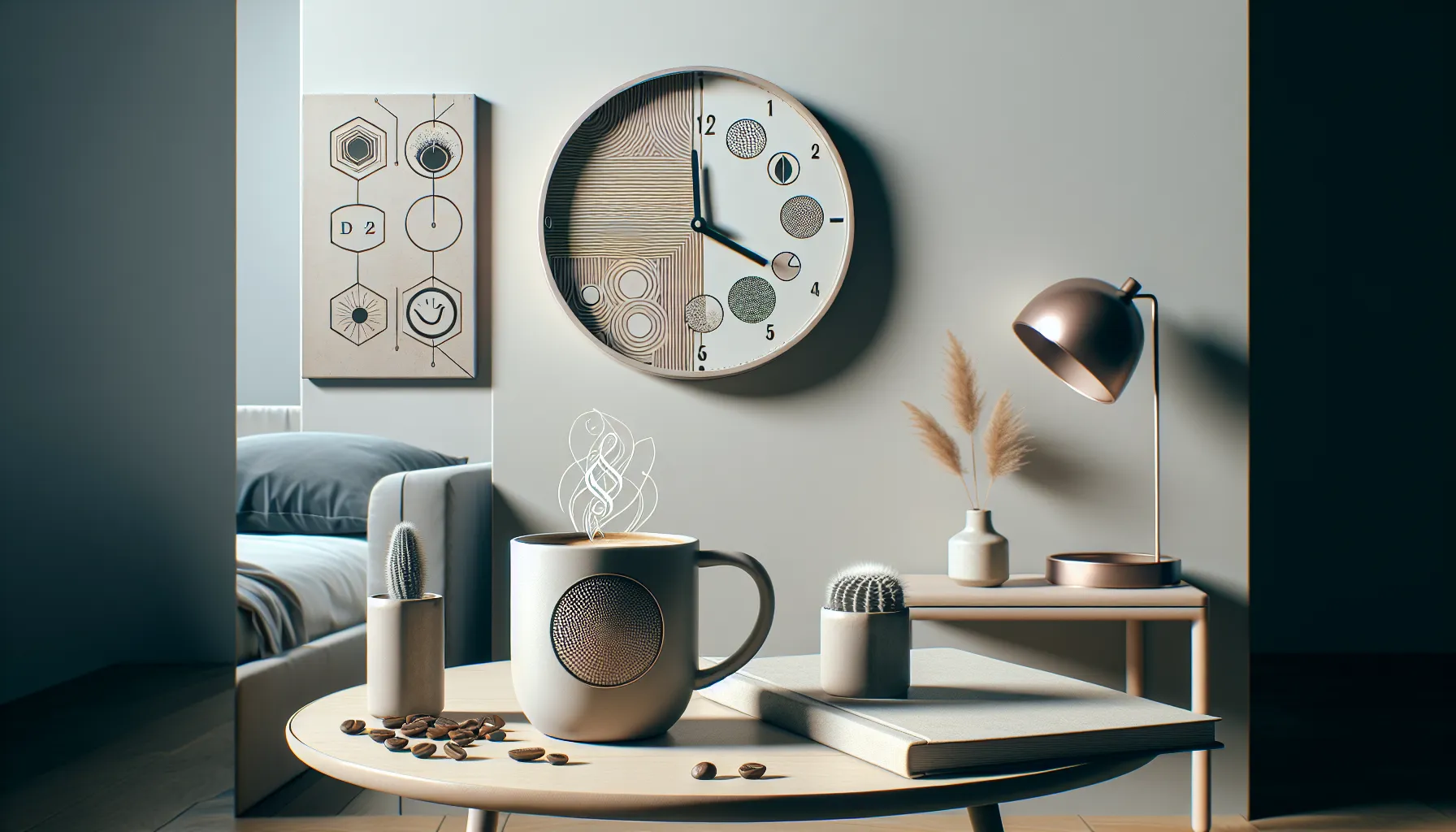
The Science Behind Coffee and Sleep
Ever wondered why that late-night espresso keeps you tossing and turning? Let's dive into the fascinating world of caffeine and its impact on our sleep patterns.
How Caffeine Affects the Brain
Caffeine is like a sneaky impersonator in your brain. It mimics a molecule called adenosine, which normally builds up throughout the day, making you feel sleepy.
When caffeine binds to adenosine receptors, it blocks the real adenosine from doing its job. The result? You feel more alert and less tired.
Impact on Circadian Rhythm
Your body's internal clock, or circadian rhythm, isn't a fan of caffeine's tricks. Regular coffee consumption, especially later in the day, can throw off this delicate balance, making it harder to fall asleep at your usual bedtime.
Caffeine's Half-Life in the Body
Think that 4 PM coffee won't affect your sleep? Think again. Caffeine has a surprisingly long half-life in our bodies, typically around 5-6 hours.
This means that half of the caffeine from your afternoon pick-me-up is still active when you're trying to wind down for bed. For some people, it can take up to 10 hours to fully metabolize caffeine.
Individual Variations in Caffeine Sensitivity
Ever notice how your friend can down an espresso and nap immediately, while you're wired for hours? We all process caffeine differently due to factors like genetics, age, and overall health.
Coffee's Influence on Sleep Quality
It's not just about falling asleep; caffeine can mess with your sleep quality too. Even if you manage to doze off, that lingering caffeine can disrupt your sleep cycles.
Effects on Sleep Onset
Caffeine can delay the onset of sleep, making it harder to drift off. This is especially true if you're sensitive to its effects or consume it close to bedtime.
Disruptions to Sleep Cycles
Even after you fall asleep, caffeine can continue to work its mischief. It can reduce the amount of deep, restorative sleep you get, leaving you feeling groggy and unrested in the morning.
Types of Coffee and Their Impact on Sleep
Not all coffees are created equal when it comes to their sleep-disrupting potential. Let's break down the differences and help you make more informed choices for your caffeine fix.
Comparing Caffeine Content
The amount of caffeine in your cup can vary wildly depending on the type of coffee you're drinking. Understanding these differences is key to managing your intake.
Espresso vs. Drip Coffee
Contrary to popular belief, a shot of espresso actually contains less caffeine than a standard cup of drip coffee. An average espresso shot (1 oz) has about 63 mg of caffeine, while a typical 8 oz cup of drip coffee packs around 95 mg.
Light vs. Dark Roasts
Here's a surprise: lighter roasts often contain more caffeine than darker ones. The roasting process actually burns off some caffeine, so those bold, dark roasts might be a better choice for evening sipping.
Decaf Options: Myths and Realities
Decaf coffee isn't completely caffeine-free. A typical cup still contains about 2-12 mg of caffeine. While this is significantly less than regular coffee, it can still affect sensitive individuals.
The decaffeination process also alters the flavor profile, which is why some coffee lovers are reluctant to make the switch. However, modern techniques have greatly improved the taste of decaf options.
Timing Your Coffee Consumption
When you drink your coffee can be just as important as what kind you're drinking. Strategic timing can help you reap the benefits of caffeine without sacrificing sleep.
The "Caffeine Curfew" Concept
Implementing a personal "caffeine curfew" can be a game-changer for your sleep routine. Many experts recommend cutting off caffeine intake 6-8 hours before bedtime to allow your body enough time to metabolize it.
Morning vs. Afternoon Coffee Habits
Morning coffee aligns well with our natural cortisol peaks, potentially enhancing its energizing effects. Afternoon coffee, while tempting, is more likely to interfere with sleep. Consider switching to decaf or herbal teas after lunch to protect your sleep quality.
Alternatives for Better Sleep
If you're struggling with insomnia but can't bear the thought of giving up your warm, comforting beverage routine, don't worry. There's a world of delicious alternatives that can satisfy your cravings without sabotaging your sleep.
Herbal Teas and Their Benefits
Herbal teas have been used for centuries to promote relaxation and better sleep. Unlike coffee, these caffeine-free options can become a soothing part of your bedtime ritual.
Chamomile and Valerian Root
Chamomile is renowned for its calming properties. It contains an antioxidant called apigenin that binds to specific receptors in your brain, potentially decreasing anxiety and initiating sleep.
Valerian root is another powerful sleep aid. It's been shown to increase levels of gamma-aminobutyric acid (GABA), a neurotransmitter that helps regulate nerve impulses in your brain and nervous system.
Other Sleep-Promoting Herbs
Lavender, passionflower, and lemon balm are also excellent choices for promoting restful sleep. These herbs can help reduce anxiety and induce a state of calm, making it easier to drift off to dreamland.
Coffee Substitutes
For those who crave the rich, robust flavor of coffee, there are several alternatives that can satisfy your taste buds without the caffeine jitters.
Chicory Root and Other Coffee-Like Options
Roasted chicory root has a flavor profile surprisingly similar to coffee. It's caffeine-free and rich in inulin, a prebiotic fiber that can aid digestion. Other options include dandelion root tea and roasted barley tea, both offering a satisfying, coffee-like experience.
Caffeine-Free Energy Boosters
If you're looking for a natural energy boost without caffeine, try options like matcha green tea powder (which contains L-theanine for a calm alertness) or maca root powder, known for its energizing properties.
Mindful Drinking Practices
Sometimes, it's not just about what you drink, but how you drink it. Developing mindful practices around your beverage consumption can help improve your sleep quality.
Gradual Reduction Techniques
If you're not ready to give up coffee entirely, try gradually reducing your intake. Start by cutting back one cup per week, or mixing regular and decaf coffee to slowly decrease your caffeine consumption.
The "Coffee Nap" Strategy
Surprisingly, a "coffee nap" can be an effective energy-boosting technique. Drink a cup of coffee quickly and immediately take a 20-minute nap. You'll wake up just as the caffeine kicks in, feeling refreshed and alert.
Managing Insomnia While Enjoying Coffee
Love coffee but hate insomnia? You're not alone. The good news is, with some mindful practices, you can often find a happy medium that allows you to enjoy your brew without sacrificing sleep.
Developing a Balanced Coffee Routine
Creating a sustainable coffee habit is all about understanding your body's unique responses and setting reasonable limits.
Setting Personal Limits
Everyone's caffeine tolerance is different. Start by tracking your coffee intake and sleep quality. This can help you identify your personal "caffeine threshold" - the point at which coffee starts to negatively impact your sleep.
Once you've found this sweet spot, stick to it. Maybe it's two cups before noon, or perhaps it's one strong brew first thing in the morning. The key is consistency.
Listening to Your Body's Cues
Pay attention to how your body reacts to coffee throughout the day. Feel jittery or anxious? That might be a sign to cut back. Notice you're having trouble winding down at night? Consider moving your last cup earlier in the day.
Sleep Hygiene Practices
Good sleep hygiene can help offset the potential sleep-disrupting effects of coffee. These practices create an environment and mindset conducive to quality rest.
Creating a Sleep-Friendly Environment
Transform your bedroom into a sleep sanctuary. Keep it cool, dark, and quiet. Invest in comfortable bedding and consider using blackout curtains or a white noise machine to block out disruptive light and sound.
Establishing Consistent Bedtime Rituals
Develop a relaxing pre-sleep routine. This could include reading a book, practicing gentle yoga, or listening to calming music. The key is consistency - your body will learn to associate these activities with sleep, making it easier to drift off.
Stress Management Techniques
Stress and anxiety can exacerbate insomnia, creating a vicious cycle. Incorporating stress-reduction techniques into your daily routine can significantly improve your sleep quality.
Meditation and Mindfulness for Better Sleep
Regular meditation practice can help calm a racing mind and prepare your body for rest. Even just 10 minutes of mindfulness before bed can make a difference. Try apps like Headspace or Calm for guided meditations designed specifically for sleep.
Exercise and Its Role in Sleep Quality
Regular physical activity can improve sleep quality and duration. However, timing is crucial. Aim to finish vigorous exercise at least 3 hours before bedtime to allow your body temperature and heart rate to return to normal.
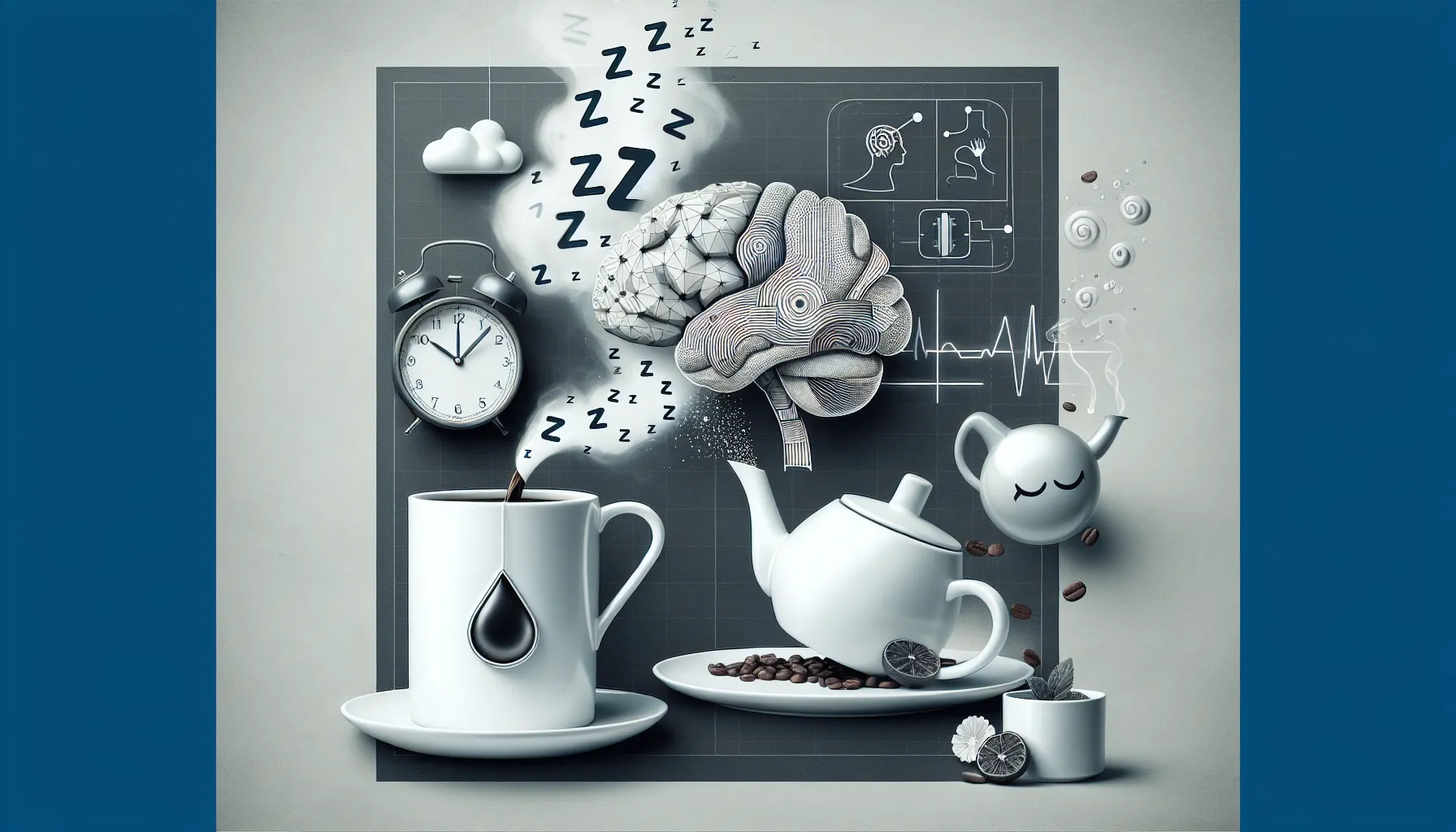
Brewing a Better Night's Sleep: Your Personal Coffee-Sleep Balance
As we've journeyed through the complex relationship between insomnia and coffee, it's clear that finding your perfect balance is key. The path to restful nights doesn't necessarily mean bidding farewell to your beloved brew.
Remember, everyone's caffeine sensitivity is unique. What works for your coworker might not work for you. It's about experimenting, listening to your body, and finding that sweet spot where you can enjoy your coffee without sacrificing sleep.
Consider implementing a "caffeine curfew," exploring herbal alternatives for evening sips, or trying the intriguing "coffee nap" technique. Pair these strategies with solid sleep hygiene practices, and you're well on your way to peaceful slumber.
Ultimately, the goal isn't to demonize coffee but to foster a mindful relationship with it. By understanding the science, recognizing your personal limits, and adopting balanced habits, you can savor your daily cup of joe while still catching those essential Z's.
So, go ahead and brew that morning coffee. Just remember, your best sleep might be just a few tweaks away. Here's to finding your perfect blend of alertness and rest!
FAQ
How long before bed should I stop drinking coffee?
Experts recommend avoiding caffeine 6-8 hours before bedtime. This allows enough time for your body to metabolize most of the caffeine, reducing its impact on your sleep. However, if you're particularly sensitive to caffeine, you might want to cut off coffee consumption even earlier in the day.
Can decaf coffee still affect my sleep?
While decaf coffee contains significantly less caffeine than regular coffee, it's not entirely caffeine-free. A cup of decaf typically contains 2-12 mg of caffeine, compared to 95 mg in regular coffee. For most people, this small amount won't affect sleep, but if you're highly sensitive to caffeine, it could still cause issues.
What are some effective alternatives to coffee for energy?
There are several caffeine-free energy boosters you can try. Herbal teas like ginseng or peppermint can provide a natural pick-me-up. Matcha green tea offers a more sustained energy boost due to its L-theanine content. Other options include B-vitamin rich foods, staying hydrated, or taking a brisk walk for a quick energy boost without caffeine.
How does exercise impact sleep quality for coffee drinkers?
Regular exercise can significantly improve sleep quality, even for coffee drinkers. However, timing is crucial. Vigorous exercise close to bedtime can be stimulating, making it harder to fall asleep. Aim to finish intense workouts at least 3 hours before bed. Light exercises like yoga or stretching can be beneficial closer to bedtime, helping to relax your body and mind.
Is it possible to develop a tolerance to caffeine's sleep-disrupting effects?
While some people may develop a tolerance to caffeine's stimulating effects over time, its impact on sleep can persist. Caffeine can still interfere with your sleep cycles and quality of rest, even if you don't feel as alert from your usual cup. It's important to monitor your sleep quality regularly and adjust your caffeine intake accordingly, regardless of perceived tolerance.





